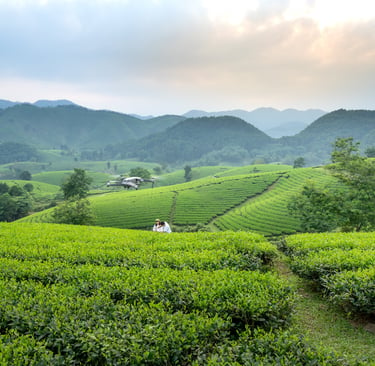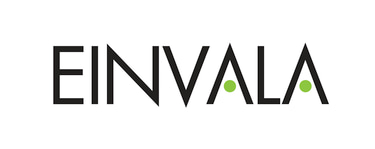From Bean to Cup: The Journey of Vietnamese Coffee
INDUSTRY HIGHLIGHT
2/1/20243 min read


From Bean to Cup: The Journey of Vietnamese Coffee
Nestled in the lush highlands and lowlands of Vietnam, the journey of Vietnamese coffee from bean to cup is a fascinating narrative that intertwines the nation's agricultural prowess, economic significance, and global influence. In this article, we'll delve into the production processes, local consumption trends, and the impact of Vietnamese coffee on the global market.
It is said that coffee was introduced to Vietnam by the colonial French around the 1850's. But the first coffee plantations came a bit later, around the 1880's, in Quảng Bình and Ninh Bình. Today most of the Vietnamese coffee beans are produced in the provinces of
Dak Nong, Kontum, Dak Lak, Lam Dong, and Gia Lai in the Vietnamese Central Highlands.
Vietnam has emerged as a powerhouse in the global coffee market, consistently ranking among the world's top coffee producers. The country's diverse climates, ranging from the cool highlands to the warm plateaus, provide optimal conditions for cultivating both arabica and robusta coffee varieties. Robusta, with its robust flavor profile and higher caffeine content, constitutes the majority of Vietnamese coffee production.
Farmers, often working in family-owned plantations, contribute significantly to the cultivation of coffee beans. The meticulous care and attention given to the coffee plants, coupled with sustainable farming practices, ensure a steady supply of high-quality beans. Notably, Vietnam has embraced both traditional and modern methods, employing advanced technologies to enhance efficiency while preserving the authenticity of its coffee.
Second biggest producer of coffee beans in the world - Produced roughly 1.8 million tons of coffee in 2022
Biggest producer of Robusta beans, more than 95% of the coffee beans produced in Vietnam is Robusta
Vietnamese coffee culture extends beyond the realm of production, with a strong emphasis on local consumption. The iconic Vietnamese drip coffee, prepared using the traditional phin filter, is a daily ritual for many residents. Whether enjoyed hot or iced, with or without condensed milk, coffee plays a central role in the social fabric of Vietnamese society.
Local cafes, ranging from bustling street-side establishments to chic urban coffee houses, serve as communal spaces where people gather to discuss business, socialize, or simply unwind. The diversity of coffee options, from traditional brews to contemporary concoctions, caters to a wide range of preferences, reflecting the dynamic nature of Vietnam's coffee culture.
Vietnamese coffee has made a substantial mark on the international stage, Vietnam is the second biggest exporters of coffee after Brazil. The majority of Vietnam's coffee exports are robusta beans, renowned for their bold flavor and versatility in various blends.
The global demand for Vietnamese coffee has been driven by its affordability, consistent quality, and distinctive taste. Vietnam's strategic position as a key player in the coffee market has contributed significantly to the nation's economic growth. The export numbers highlight the role of coffee as a crucial commodity in Vietnam's export portfolio, fostering economic development in both rural and urban areas.
Vietnam supply more than 50% of the worlds Robusta demand
Exported roughly 1 million tons of coffee in 2022
Exported an estimated 4 billion USD worth of coffee in 2022
The journey of Vietnamese coffee from production to consumption is a testament to the nation's agricultural prowess, cultural heritages, and economic robustness. From the meticulous cultivation of coffee beans by local farmers to the vibrant coffee culture that permeates daily life, Vietnam's coffee story is one of innovation, tradition, and global impact. As the world continues to savor the flavors of Vietnamese coffee, its significance in both local communities and the global marketplace is set to endure, bridging cultures and creating connections one cup at a time.
Reach out to Einvala if you are interested in purchasing or distributing Vietnamese coffee beans. We can help you find suitable suppliers and partners.
